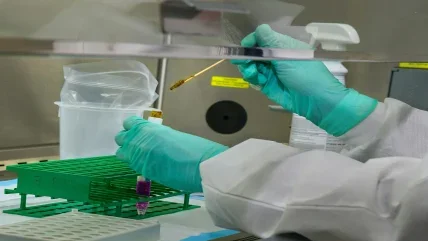
A study by a research team at Michigan State University (MSU) has shown that red ginseng benefits bone and gut health through balancing intestinal microbiota.
Led by Professor Narayanan Parameswaran from the university’s Department of Physiology, the team presented their findings at the recently held Korea Ginseng Society International Conference in Jeju Island, South Korea.
The research builds on prior findings published by Michigan State in the Journal of Ginseng Research in 2023, which identified the intestinal microbiota as a key factor in bone health.
In these earlier trials, the team administered antibiotics to a mouse model over two weeks, causing an imbalance in intestinal microflora. Over the next four weeks, observations showed that this imbalance led to leaky gut syndrome and bone density reduction.
According to the researchers, leaky gut syndrome occurs when intestinal mucosal cells are damaged, weakening the barrier and allowing substances to pass through. This potentially causes digestive symptoms like gas, diarrhoea, constipation, bloating, and indigestion.
In their latest study, Parameswaran’s team administered red ginseng extract to a mouse model with disrupted gut balance. After a four-week period, they observed improvements in both intestinal barrier function and bone density.
Mice given red ginseng showed an increase in the diversity of beneficial gut bacteria and enhanced barrier health, which helped reduce symptoms of leaky gut syndrome. The findings suggest that improving gut health positively impacts bone health.
Parameswaran said: “There have been previous research results showing that red ginseng and ginseng help with bone health, but this is the first to show that they help with the balance of intestinal microorganisms, thereby preventing bone loss and leaky gut syndrome.
“It is significant that we have confirmed the beneficial effect of red ginseng on gut-bone axis in multiple models of bone loss and the potential for red ginseng to be developed as a treatment for osteoporosis in the future.”
Recently, the Ministry of Food and Drug Safety of Korea officially recognised red ginseng’s effectiveness in managing blood sugar levels. This approval followed clinical studies by health brand JungKwanJang, which confirmed that red ginseng reduces fasting and post-meal blood sugar as well as glycated haemoglobin levels.
JungKwanJang’s research demonstrated that red ginseng aids blood sugar regulation through mechanisms such as improved insulin resistance and increased GLP-1, a hormone involved in glucose metabolism.






